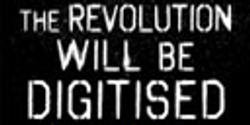Review: The Revolution will be Digitised by Heather Brooke
Laura MacPhee follows the investigative journalist's account of the "Information War".

Image: CC-BY-3.0 Heather Brooke The Revolution will be Digitised
There is no doubt that 2011 has been a momentous year. The previously unimaginable scale and force of the Arab Spring has ensured that this will be viewed as a year of revolution. This is what makes the publication of Heather Brooke’s latest book so timely. The Revolution Will Be Digitised explores the role which technology has to play in the dissemination of information and the consequential empowerment of citizens.
Access to information has been a subject of contention for decades. Indeed, Radio 4 recently launched a successful programme entitled One Hundred Years of Secrecy which looked at how information has been controlled over the past century. So it is not the “Information War” that is new, but the battlefield, to extend that metaphor.
Much has been made of the role of technology, and social media in particular, in spreading information and encouraging democracy. Nonetheless, Brooke’s contribution to the debate is exceptionally valuable for a number of reasons, not least because she herself became integral to the plot in the process of researching it. As she explained at a meeting of Westminster Skeptics, she began this project as a detached and critical observer, before she realised how caught up she would become. This has allowed her to offer a unique insight into life on the front lines of the Information War.
This is not to say, of course, that the issue is exclusively a combative one. Heather Brooke speaks equally of the “Information Enlightenment” and explores the great opportunities available “where knowledge flows freely, beyond national boundaries”. The goal of this information exchange, she claims, is to discover “truths about the way we live, about politics and power.” Public confidence in each of these is so low that calls for greater transparency were almost inevitable. That is part of what makes The Revolution will be Digitised so appealing. Brooke adopts a narrative style, which makes the book especially engaging and accessible. This also allows her to explore the human stories behind the technological activity and political events. In the first chapter, she describes a young “kid” who becomes disillusioned whilst working in military intelligence in Iraq. This is a sympathetic tale which allows the reader to appreciate how someone in that position could be driven to leak secret information. Although he is not identified as Bradley Manning, Brooke acknowledges that there are distinct similarities.
She goes on to examine Manning’s plight explicitly in later chapters, but she achieves maximum impact by explaining the background first. She sets up the situation by introducing the phenomenon of hackerspaces. These are areas where technologically adept activists meet to experiment and explore the possibilities open to them. As Brooke explains: “Hackers want to deconstruct systems to figure out how they work.” This notion and its systematic implementation are vital to the progression of the book.
This is the story of the now infamous Collateral Murder footage, which shows a US Apache helicopter opening fire on Iraqi citizens. Brooke’s analysis takes us from Iceland (where public disenchantment with the banks sparked an appetite for transparency) to Norway, where she first encountered Julian Assange at a meeting of investigative journalists. She describes her relationship with Julian Assange in a way which reveals Assange in a strikingly intimate - and not altogether flattering - light. It is only after she explains how Assange chose to reveal and publicise the video footage that she introduces Manning’s arrest.
The plotline offers Brooke extensive scope to examine the opportunities and threats posed by the new channels open to both citizens and the government. She develops these points eloquently and reveals the complex and intricate web of rules which dictates how much the public know. Understanding how this works is just the first part of the process, as Brooke rightly points out. We must now figure out how to reduce the risk of censorship and maximise the benefits of increased openness. The potential gains are exceptional. As Brooke notes: “The greatest achievement isn’t in producing technology, but using it to re-define the boundaries of what is possible.”
Share this article











Comments

Latest Articles
Featured Article
Schmidt Happens

Wendy M. Grossman responds to "loopy" statements made by Google Executive Chairman Eric Schmidt in regards to censorship and encryption.
ORGZine: the Digital Rights magazine written for and by Open Rights Group supporters and engaged experts expressing their personal views
People who have written us are: campaigners, inventors, legal professionals , artists, writers, curators and publishers, technology experts, volunteers, think tanks, MPs, journalists and ORG supporters.






Comments (0)